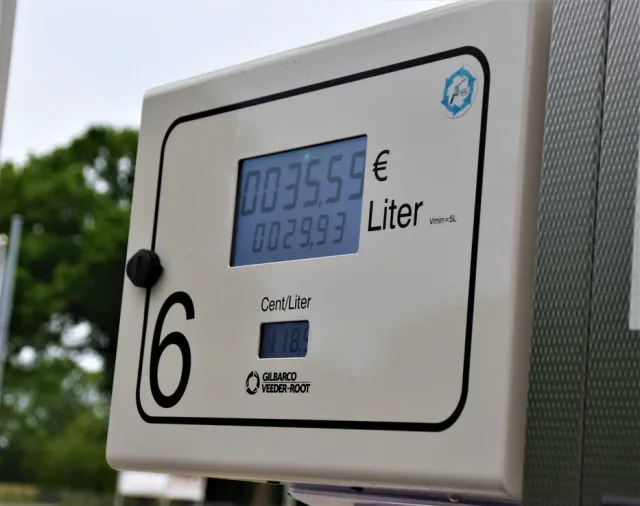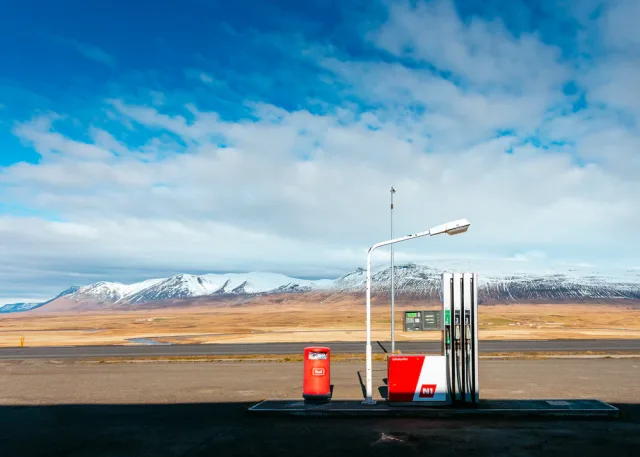
Winter can be harsh at times. Depending on where you live, you might experience snowfall or no-fall. If you live somewhere the temperature easily tends to fall to the negative and you are left with nothing but freezing cold hands, then you might worry about your car too. Depending on the type of car you use, you may or may not be in trouble. If you own a car that uses diesel, you can run a risk of it being frozen. Electric car? Yeah, fine. How about gasoline? We’ll be talking about it, so check here.
When the winter comes, you need to prepare your car, especially if you live somewhere where it snows. Preparing for winter includes putting in snow tires, chains, and making some other adjustments to make your lives easier. It also depends on how much snowfall your area receives. If you live in the cold depths of Alaska, your lifestyle might be very different from those living in Texas. But the primary question you may have in your mind is, does gasoline freeze?
Does gasoline freeze?

Gasoline is not made up of the same molecules like water or other liquid. Water freezes at 0-degree Celsius, or 32-degree F. But gasoline is not the same. In fact, the molecules that make up gasoline have a strange property. Whenever the temperature gets low, the molecules turn into jelly-like items. It hardly occurs that gasoline will “freeze”.
However, the same cannot be said for diesel. Diesel will start at around 14-degree F. So if your car uses diesel, you might want to take every precaution to make sure that diesel does not freeze inside your fuel tank. This is why you might notice truck drivers leave their trucks idling, so as to make sure that the fuel does not freeze.
When it comes to gasoline, the lower the temperature gets, the greater the viscosity becomes. This is largely due to the fact that gasoline is made up of distillate compounds. What is viscosity? Viscosity is like friction inside a liquid. You can think of it as friction between the various layers in a liquid.
Or, in simpler terms, it can be thought of as the thickness of the fluid. So, with a lower temperature, the viscosity of the liquid increases. This can create some problems inside the vehicle. As the thickness increases, the internal parts of the car have to work harder to keep the fuel moving.
So, working more than the usual amount surely takes its toll on the engine and its various moving parts. Also, if the fluid is cold, it will take more energy to ignite it. So, there is no doubt that engines have to work harder during winters. It might take more energy to bring an engine to life during the winter.
How does harsh winter temperatures affect gasoline?

According to a study, it is found that fuel efficiency is around 10% lower at -5 degrees C or 23-degree F. The gasoline inside your engine will not offer the same efficiency at sub-zero temperatures as it would at higher temperatures.
Even though the gasoline will not freeze, it will still have negative effects on your car’s internals. Such as the fact that on cold days, the engine will take longer to heat up and reach its optimum temperature. Your fuel economy will be affected as the gasoline will thicken and cause friction in the moving parts inside the vehicle (due to higher viscosity, as mentioned above).
Another problem might befall your electrical components or mechanical components freezing and ceasing to function due to frostbite and harsh temperatures. Cold air will also increase the drag of your car, making your car go slower and causing it to work hard to push forward. Also, regular tires won’t offer you the same grip on the road, unless you use all-season or winter tires. The car is also susceptible to slippage or rolling more than usual.
At what temperature does gasoline freeze?

Now, to answer this question, we must first understand that gasoline is not a magical fluid that does not freeze. Everything can and does freeze. However, due to the unique properties of gasoline, it is much harder to freeze it than say, a glass of water. There is no fixed temperature at which gasoline freezes.
It largely depends on the type of gasoline being used. It also depends on the components that make up the gasoline. Components vary, and so do the impurities that are present in gasoline. So, as such, there is no specific temperature that gasoline freezes. Just like adding salt to water drastically lowers its freezing temperature, so does adding different components to gasoline.
With that being said, the regular freezing point of gasoline is around -60 degrees Celsius or -76 degrees F. It can be slightly lower or slightly higher. Depending on these temperatures, it is highly unlikely that gasoline will ever freeze where you live.
Even the coldest state, Alaska, experiences an average winter temperature of -16.3 degrees C or 2.6 degrees F. So, you probably wouldn’t have to worry about your gasoline ever reaching freezing temperatures. However, that does not mean that the fluid won’t get cold and viscous. In that case, the consequences mentioned above are likely to happen.
What to do with your car during the winter months

When it snows harshly or the weather is too cold, you can try a few things:
First of all, make sure to park your car inside an enclosed wall, or a garage, for the night. This way, it won’t have to face the harsh temperatures outside and it can stay slightly warmer inside. The fluid won’t get as cold and vicious, and the other parts of the car would also stay comparatively warmer. Next, you must switch to good-quality winter tires as summer tires will not keep up with the harsh weather.
Further, make sure to avoid going short distances. If you only go short distances, your car’s engine won’t be able to reach the optimum temperature and would degrade the engine’s lifespan. If possible, go long distances. Also, don’t leave the car idling for too long, rather just about enough. Finally, also make sure to use a good quality engine oil that will be able to hold its own during the harsh winter climate.









